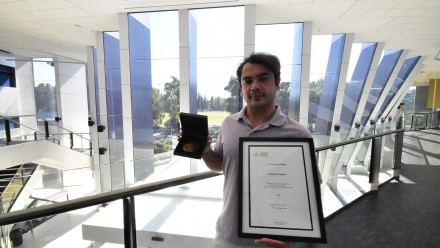Islet beta cell adaptation and failure during progression of type 2 diabetes
Associate Professor Ross Laybutt, Garvan Institute of Medical Research, Sydney, NSW
Type 2 diabetes arises in subjects with islet beta cells that are susceptible to dysfunction and death under conditions of high insulin demand. Stress within the endoplasmic reticulum (ER) has been proposed as a mechanism for beta cell failure in type 2 diabetes. However, recent findings suggest that the adaptive response to ER stress is linked with beta cell compensation and protection against obesity-associated diabetes. Conversely, in genetically susceptible islets, the suppression of ER adaptation and the loss of beta cell differentiation underlies beta cell failure and progression to diabetes. The factors leading to beta cell failure include chronic hyperglycaemia, inflammation and hypoxia. This knowledge is critically important to understanding the mechanisms responsible for the switch from beta cell compensation to failure in type 2 diabetes.
Associate Professor Ross Laybutt is the Head of the Islet Biology Group at the Garvan Institute of Medical Research in Sydney. His research investigates the mechanisms of pancreatic beta cell adaptation and failure during the progression of type 1 and type 2 diabetes. His work has identified roles of endoplasmic reticulum stress and inhibitor of differentiation (ID) proteins in beta cell dysfunction and death. He received his PhD from the University of New South Wales in 1998. He undertook postdoctoral studies at the Joslin Diabetes Center, Harvard University, Boston, USA. He serves as Honorary Treasurer of the Australian Diabetes Society and on the editorial boards of the Journal of Endocrinology, Journal of Molecular Endocrinology and Molecular and Cellular Endocrinology.












